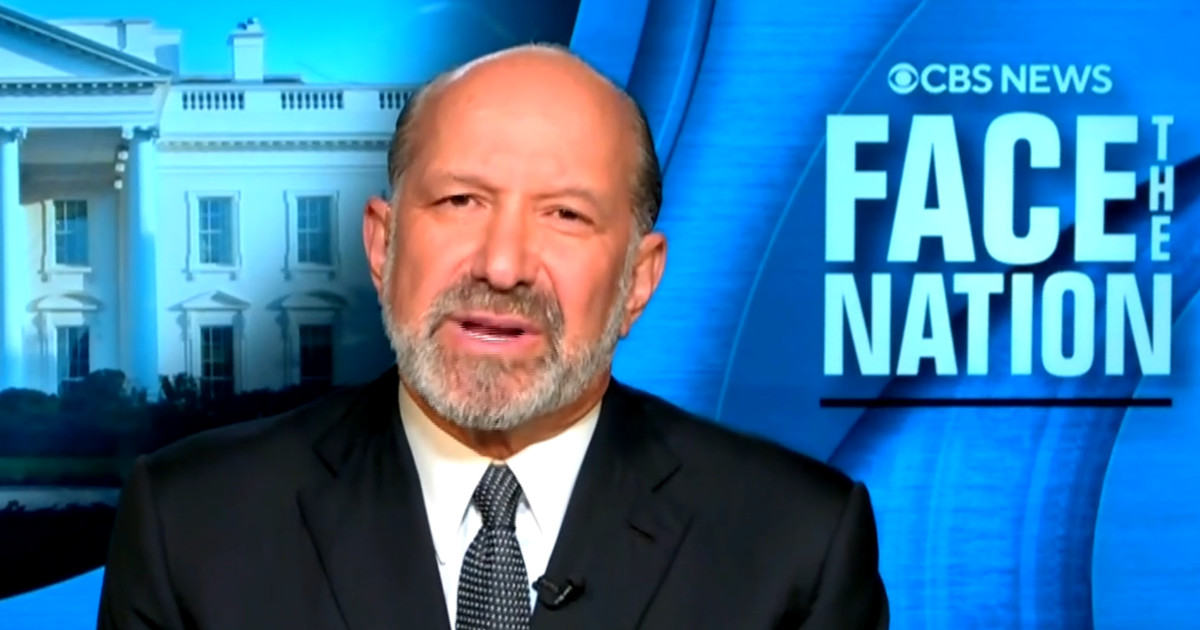On April 6, 2025, a noteworthy interview with United States Commerce Secretary Howard Lutnick aired on CBS News’ “Face the Nation.” The show’s host, Margaret Brennan, welcomed Secretary Lutnick and opened the discussion with the current state of the financial markets, and how it affects the average American and major hedge fund managers alike.
Secretary Lutnick began by emphasizing the gravity of the situation, framing it as a national security issue. He highlighted the U.S.’s reliance on foreign countries for goods such as medicine, semiconductors, steel, and aluminum. He stated that the U.S. needs to start protecting itself and stop the exploitation from other countries, which has led to a $1.2 trillion trade deficit.
He further elaborated on the issue, stating that the rest of the world is profiting from this deficit by taking the U.S.’s money. He credited President Donald Trump for recognizing this issue and taking steps to rectify it. Secretary Lutnick stated that this change will be significant as it aims to rectify years of the U.S. being taken advantage of by other countries.
Margaret Brennan then brought up the panic that had been spreading in the global markets due to the President’s policies and asked Secretary Lutnick if he expected such a reaction. He replied by saying that the U.S. needed to reset its power against its allies and enemies. He reminded Brennan that the U.S. ran a $1.2 trillion deficit each year, which allowed other countries to buy $1.2 trillion of America. He expressed concern that if this continued, the rest of the world would soon own America.
The Secretary then pointed out the potential danger of this situation, imagining a scenario where the U.S. couldn’t build a ship or plane due to relying on foreign goods for too long. He maintained that President Trump is set on rectifying this situation and ensuring that America remains in American hands.
When asked about the clarity for businesses, specifically the need for certainty in their investment decisions, Secretary Lutnick reassured that the U.S. would protect companies that chose to invest in America. He stated that trillions of dollars are coming to invest in America and that companies need to start building their products domestically. He also added that while American workers might be more expensive, they are better.
Secretary Lutnick continued to emphasize that the U.S. would protect factories built in America and the jobs they create. When asked about the permanency of the 10% tariff, he reiterated that this is a national security issue and that the aim is to protect companies that invest in America.
As the conversation progressed, Brennan asked if the tariffs are negotiable or if they will remain in place. Secretary Lutnick stated that there would be no postponement, emphasizing the need to reset global trade and end the exploitation of America by other countries. He stressed that the President’s intent is clear, and factories that come to build in America will be protected and will be successful.
Brennan then asked if the administration was considering any offsets or subsidies to help businesses, particularly farmers, deal with the impact of the tariffs. Secretary Lutnick stated that he had not participated in any meetings concerning this but stressed the importance of factories being built in America, which will contribute significantly to the GDP.
Brennan then asked whether Secretary Lutnick was concerned that other markets might choose other suppliers over the U.S. while companies moved back to America. Secretary Lutnick dismissed this concern as ‘ridiculous,’ stating that the rest of the world sells to the U.S. and that the U.S. is the consumer of the world. He reiterated that the rules have been unfair, and President Trump is determined to fix them.
The interview concluded with Brennan thanking Secretary Lutnick for his time and insights. The conversation highlighted the administration’s firm stance on trade relations and the measures being taken to protect and promote domestic businesses and investments. The discussion underscored the administration’s conviction that the current situation is a national security issue that requires urgent attention to ensure the future prosperity of the United States.









